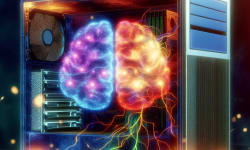
Titan and Yanko Design Unveil "Retrofuturism Challenge" Offering Internships and Prizes Worth $2200+
Titan and Yanko Design have launched the "Retrofuturism Challenge," inviting designers to participate in the YD x Titan Design Competition. The challenge offers internships and prizes exceeding...





